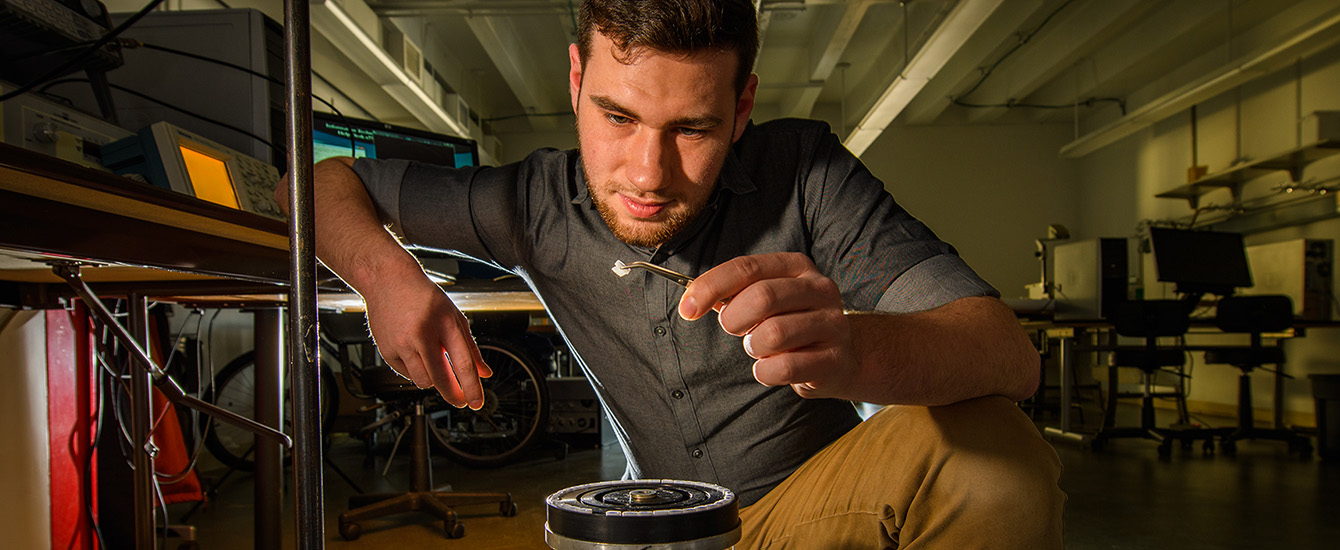Greg Jones uses physics technology, 3D printing to examine how backups form
Opportunities to Pursue Research
We believe it is important for undergraduates to make an early transition from classroom work to the more direct and active learning process involved in research. By becoming involved in research and collaborating with others, you’ll acquire a high degree of exposure and self-reliance.
How soon should you get involved in research? It depends on your level of ability and your motivation. However, the earlier you begin, the more rewarding your project will be. Most physics majors start in their junior year, but some have been known to begin in their first or sophomore year.
What Might You Research?
Your research usually will connect to the work of a faculty mentor. Research in the department is broadly concentrated in the experimental and theoretical study of condensed matter physics — a term for the physics of solids, gases, and liquids.
Our faculty’s experimental research focuses on:
- Granular matter
- Fluid dynamics
- Applied mechanics
- Scanning tunneling microscopy
- Correlated electron systems
- Superconductivity
- Renewable energy technology
- Complex microbial ecosystems
Our faculty’s theoretical research includes:
- Computational physics
- Computer simulation studies of phase transitions
- Investigating theoretical and computational problems at the interface of physics and biology
Collaboration
Although the stereotype of a scientist might be that of a solitary worker working in a laboratory late at night, the reality is that researchers collaborate with other scientists from all over the world and across disciplines.
Our faculty regularly collaborate with colleagues at other institutions, and are involved in interdisciplinary research on active matter, environmental issues, physics education, and the technology of renewable energy.
Additional Opportunities
- Publications: Our undergraduates often publish papers in refereed journals along with their faculty advisers and other collaborators.
- Presentations: Share your research at Clark’s annual undergraduate Fall Fest and Academic Spree Day events.
- Student Journal: Submit your research for publication in Clark’s student-run Scholarly Undergraduate Research Journal.




